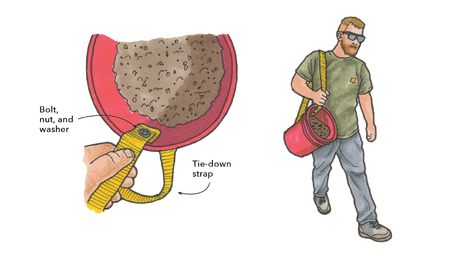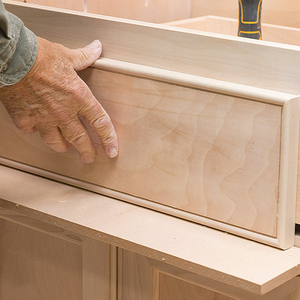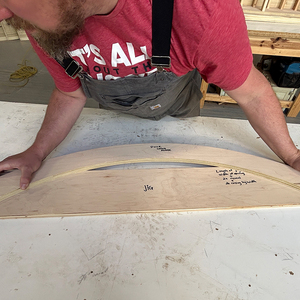*
Has anyone achieved good results from installing HURD windows with Southwall “Heat-Mirror” for noise reduction purposes? If not HURD, what seems to be the leading manufacturer for windows for noise reduction?
Discussion Forum
Discussion Forum
Up Next
Video Shorts
Featured Story

Add a strap for easy carrying and pouring when working with 5-gal. buckets.
Featured Video
Video: Build a Fireplace, Brick by BrickHighlights
"I have learned so much thanks to the searchable articles on the FHB website. I can confidently say that I expect to be a life-long subscriber." - M.K.
Fine Homebuilding Magazine
- Home Group
- Antique Trader
- Arts & Crafts Homes
- Bank Note Reporter
- Cabin Life
- Cuisine at Home
- Fine Gardening
- Fine Woodworking
- Green Building Advisor
- Garden Gate
- Horticulture
- Keep Craft Alive
- Log Home Living
- Military Trader/Vehicles
- Numismatic News
- Numismaster
- Old Cars Weekly
- Old House Journal
- Period Homes
- Popular Woodworking
- Script
- ShopNotes
- Sports Collectors Digest
- Threads
- Timber Home Living
- Traditional Building
- Woodsmith
- World Coin News
- Writer's Digest


















Replies
*
Just about any window will do the job if installed in the country.
Window construction is only part of the equation, installation to ensure minimum vibration is also important. Rule of thumb, the heavier the window the less it vibrates.
*
Gabe,
Thanks for the advice. I realize that there are other factors including wall assembly, etc. but assuming that the wood stud wall is constructed properly with appropriate insulation, then the window would be the "weak-link".
The STC ratings for windows (or should I say, glazing) seem to be all over the place. For example, installing low-e laminated glass in a dual-glazed windows will achieve a wide range of STC ratings depending on the air gap and how the glass is installed. Hurd manufactures a combination wood/aluminum style window that uses "Insol-8" technology and achieves an STC rating of 35. If I wanted to achieve a rating greater than this, do I then become limited in the window construction material? Will I have to get aluminum frames? Do these ratings really matter for exterior walls?
Without researching every window manufacturer out there do you how I could find which ones have the most flexibility in specifying glazing?
*
Has anyone achieved good results from installing HURD windows with Southwall "Heat-Mirror" for noise reduction purposes? If not HURD, what seems to be the leading manufacturer for windows for noise reduction?
*
Marie,
I don't particularly like to compare window manufacturers because they all have good and bad features.
For proper sound attenuation(and I use this word because soundproof is not possible with common house building practices) several things should be taken into consideration. A solid frame and sash constructed out of oak would be better than one out of vinyl or aluminium. A smaller window will be better than the same model in a larger size. A window with 6mm glass will be better than the same window with 3mm glass. A thermal pane with wider spacing is better than one with less spacing.
The use of advertising hype will not make a window perform better than the next.
Never mind the advertising, check out the windows in the flesh, compare specification sheets of the windows, is one thicker than the other, heavier than the other, etc. then apply common sense to what you have read.
Give me some glue as to where this house is, which windows are affected, their size, and the type of noise that your concerned with.
Maybe I can be more specific.